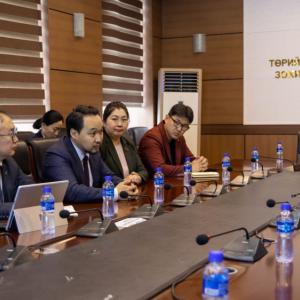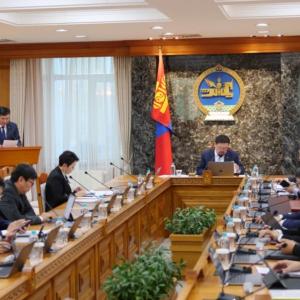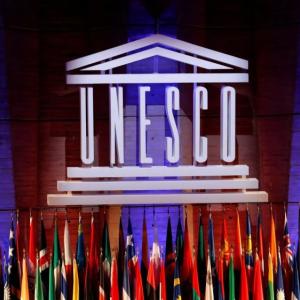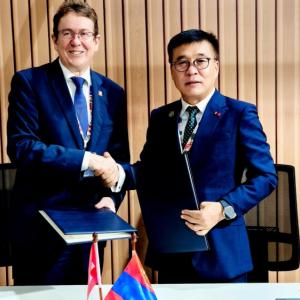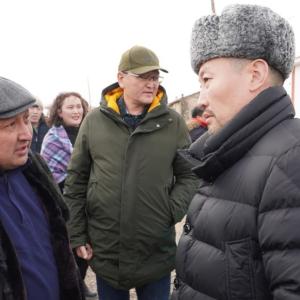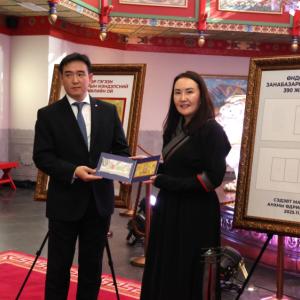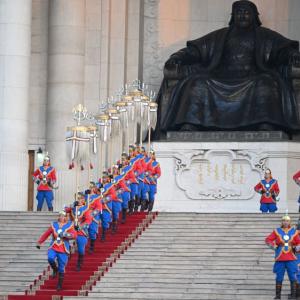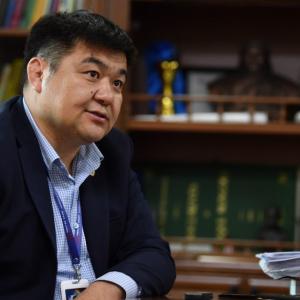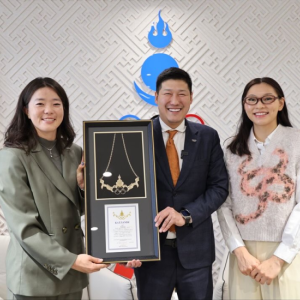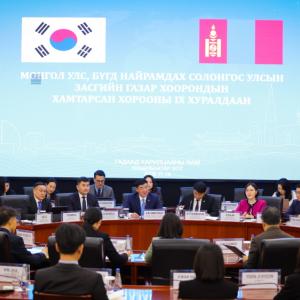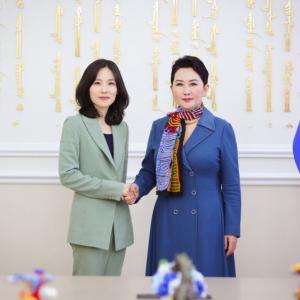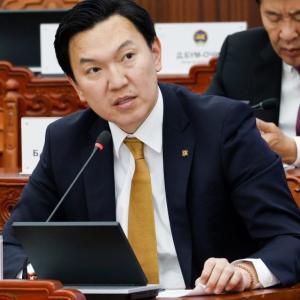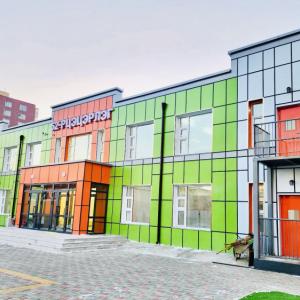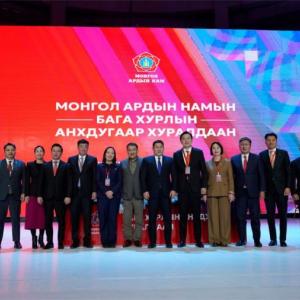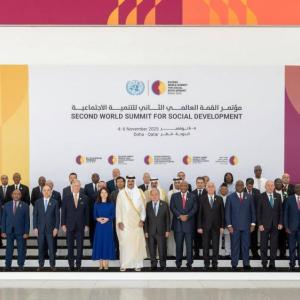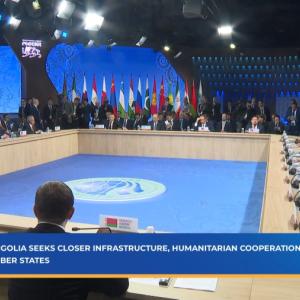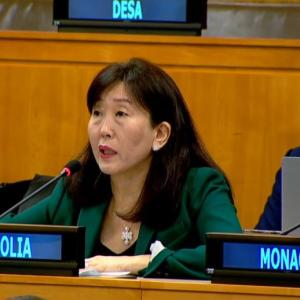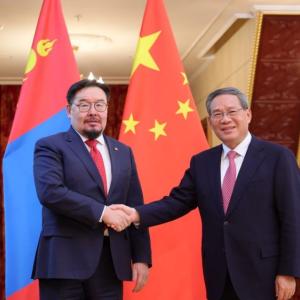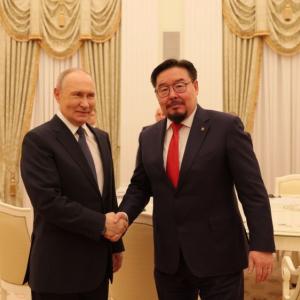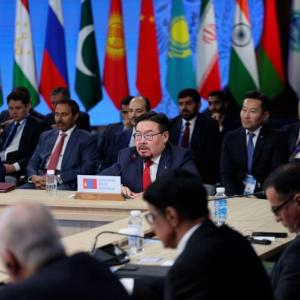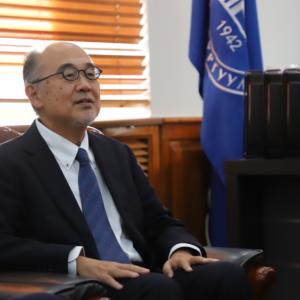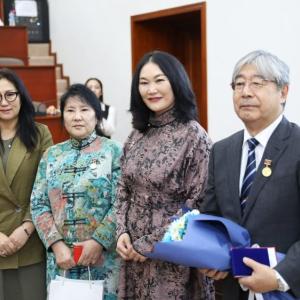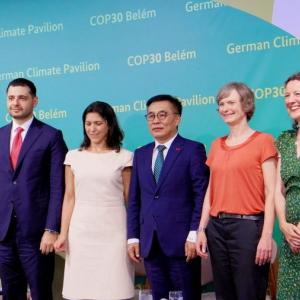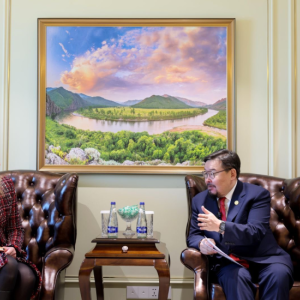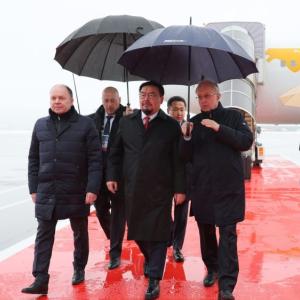Mongolia and the US Hold Dialogue on Investment in Clean and Renewable Energy
Politics
Ulaanbaatar, October 2, 2024 /MONTSAME/. Mongolia and the United States of America held an Energy Dialogue on October 1, 2024, at the Ministry of Foreign Affairs of Mongolia in Ulaanbaatar.
The dialogue was attended by State Secretary of
the Ministry of Foreign Affairs Munkhtushig Lhanaajav,
State Secretary of the Ministry of Energy Tavinbekh Nansal, and Acting State
Secretary of the Ministry of Industry and Mineral Resources Javkhlanbaatar
Sereeter from the Mongolian side and a delegation from the Bureau of Energy
Resources, led by Deputy Assistant Secretary of Energy Diplomacy Kimberly
Harrington, and Ambassador of the US to Mongolia Richard Buangan from the US
side and other officials.

During the dialogue, the representatives of the two parties
had discussions on attracting more energy investment in clean and renewable
energy fields in Mongolia, the key issues facing
Mongolia’s critical minerals sector, building on the Mongolia-US Memorandum
of Understanding on Critical Minerals, that
was signed in Ulaanbaatar last year.
Deputy Assistant Secretary for Energy Diplomacy at the U.S.
Department of State Kimmy Harrington said, “My visit follows the
visits of several senior U.S.
government officials over the past year to Mongolia, including Undersecretary
Jose W. Fernandez, who came here about a year ago
and signed a Memorandum of Understanding on
Critical Minerals Cooperation. I also joined a meeting with Foreign Minister
Battsetseg in Washington, D.C. several months ago. That was a high-level dialogue. During that discussion, we decided to have
another energy dialogue between our two governments.”

“I know just from being here for a couple of days you are
very blessed with incredible wind and solar resources…We are doing some
technical assistance with the government of Mongolia to help better map
out the critical mineral resources in Mongolia.”
“We do these dialogues in about 20 countries around the
world, where we feel like we have strategic energy partnerships, and
Mongolia is among them...In almost all of these dialogues, we always include a 1.5
element, meaning we include the private sector in some of the discussions, to
facilitate discussions and dialogue between the private sector and the
government on issues related to the clean energy transition, how to attract and
how to maintain the best quality investment from around the world. So, we are
looking forward to that,” noted Deputy Assistant Secretary Kimmy Harrington.
At the Energy Dialogue, the US Ambassador Richard Buangan emphasized
in his remarks, “Mongolia has an incredible chance to lead this region in
renewable energy and green technology. While progress in the past
sometimes seemed slow, this new coalition government has shown that Mongolia is
ready to do the work necessary and make the tough decisions needed to
transition from the unsustainable coal-burning plants of the past to the
renewables of the future.”
“Since my arrival in Mongolia as Ambassador in 2022, I have
watched our bilateral relationship grow in very key critical areas. In 2023, we
signed the Open Skies agreement and currently the Mongolian Civil Aviation
Authority and our Federal Aviation Authority are working together to safely
conduct direct flights as soon as possible. As Deputy Assistant Secretary
Harrington mentioned, last year we signed an MOU on critical minerals that has
led to multiple technical assistance programs between the United States and
Mongolia in an effort to help improve Mongolia’s mining law and supply chains.”

“Mongolia needs clean, sustainable, and predictable energy in order to continue its development and attract investments both from foreigners and from Mongolians. This has to be a private-sector-led effort. It can only succeed if it is sustained and driven by the private sector, with the Mongolian government protecting and nurturing. So, we will explore how the United States can continue to work together with Mongolia to achieve its energy goals. Energy security is national security. It is very important for Mongolia to fully embrace, and the United States stands behind you as a partner.
Mongolia’s ability to unlock its vast potential in critical
minerals will help fuel the renewable energy transition, both here and
throughout the world. That is why we are dedicated to finding creative
solutions to help Mongolia attract private investment and sustainable growth in
the critical minerals sector… Energy is a core component of our bilateral
engagement, and it will continue to be so.,” highlighted the U.S. Ambassador.
 Ulaanbaatar
Ulaanbaatar





